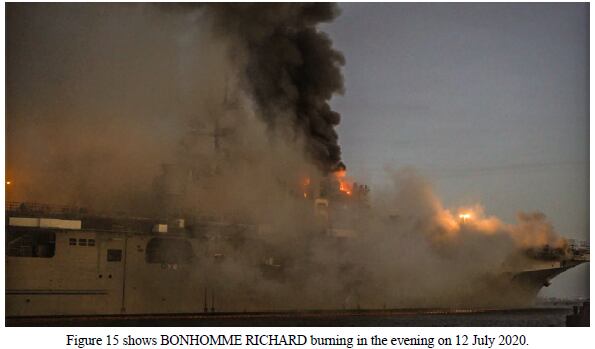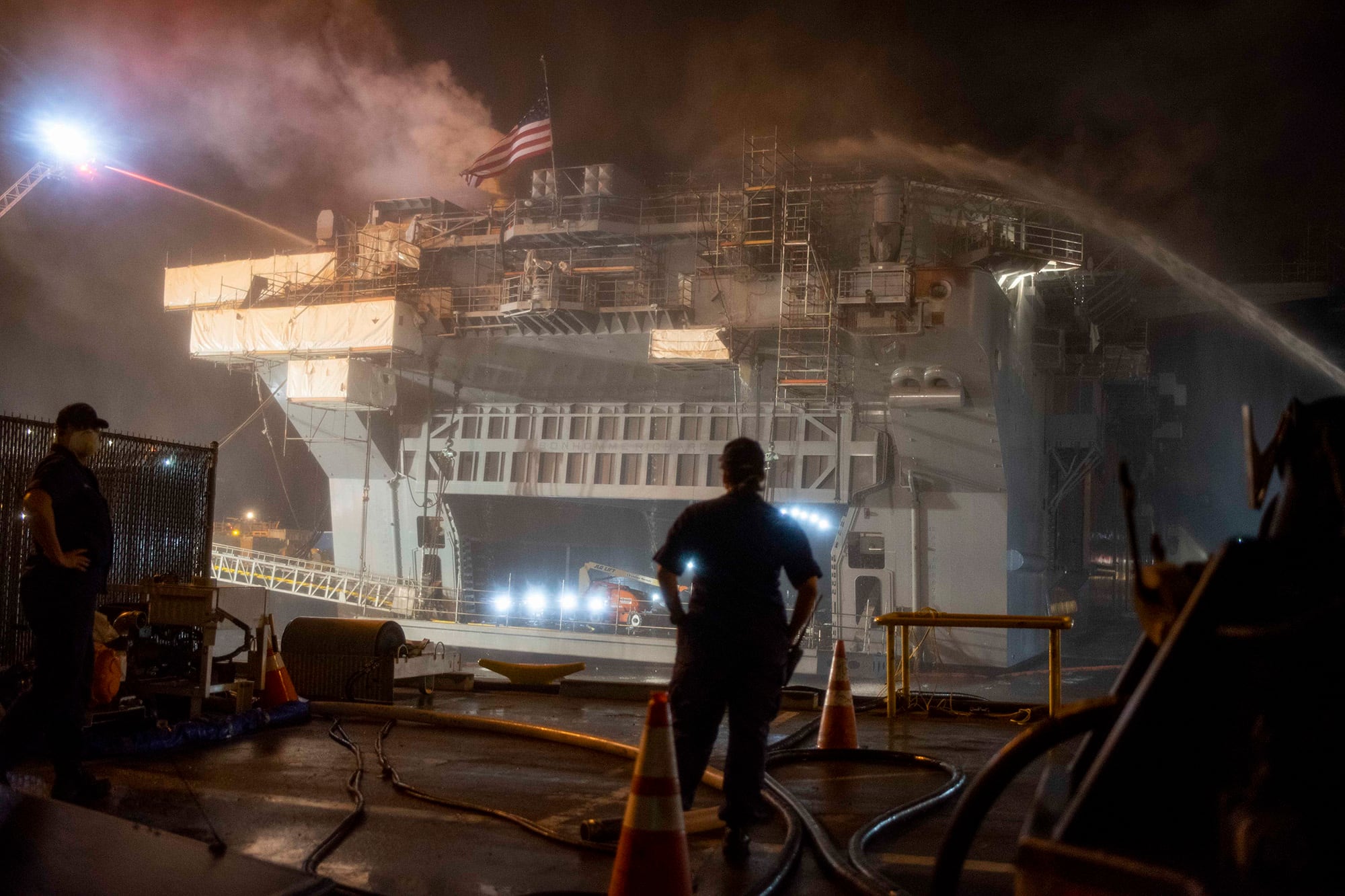The Navy command in charge of designing, building and maintaining ships has stood up a new team aimed at preventing the kind of industrial shipboard fire that destroyed the amphibious assault ship Bonhomme Richard in July 2020.
But its more challenging task may lie in its aim to change the sea service’s cultural mentality when it comes to preventing such mishaps.
Naval Sea System Command’s new Industrial Fire Safety Assurance Group will provide an office focused on analyzing shipboard fire metrics and developing policies to reduce such risks, according to a statement announcing the new group.
It will also aim to standardize shipboard fire reporting processes.
The Navy has charged a junior sailor, Seaman Apprentice Ryan Sawyer Mays, with starting the Bonhomme Richard blaze July 12, 2020, while the ship was undergoing pricey upgrades in San Diego.
But an investigation released this fall found that, while Mays allegedly started the fire, failures at several Navy echelons prevented it from being extinguished, leading to a multi-day inferno and the ultimate scrapping of the billion-dollar ship earlier this year.
RELATED

The Navy has had 14 major shipboard fires in the past 12 years, including the 2012 fire aboard the submarine Miami, which led to the scrapping of that boat.
Those fires have cost the Navy more than $6 billion, while affecting maintenance and deployment schedules as well.
The Navy pushed out a variety of new guidance and regulations following the Miami disaster, but according to the Bonhomme Richard investigation, those post-Miami lessons and policies were not properly disseminated to the fleet.
NAVSEA’s new fire safety group will pay particular focus to hot work and electrical fires, which have been the “top offenders” when it comes to shipboard fires, according to the Navy.
Other common shipyard fire dangers include material handling, stowage and a failure to comply with existing fire safety requirements, the group’s director, Eric Duncan, said in a statement.
“One of the most important functions of the (group) will be to collaborate and share lessons learned with key stakeholders in shipbuilding and maintenance,” the group’s deputy director, Brian Berchtold, said. “(The group) will drive change across the NAVSEA enterprise that will significantly improve the overall fire safety posture for ships in industrial environments.”
RELATED

In addition to its surface fleet work, the group will serve as a fire safety resource for submarines at Trident refit facilities.
“Shipboard fires in an industrial environment cannot be considered an acceptable cost of doing business,” Duncan said in a statement.
NAVSEA hopes the new group will also help spread the message that any shipboard conditions that could lead to a fire should be reported.
“The adage ‘see something, say something’ directly applies,” Duncan said. “The condition you report may prevent the next major fire.”
Geoff is the managing editor of Military Times, but he still loves writing stories. He covered Iraq and Afghanistan extensively and was a reporter at the Chicago Tribune. He welcomes any and all kinds of tips at geoffz@militarytimes.com.





